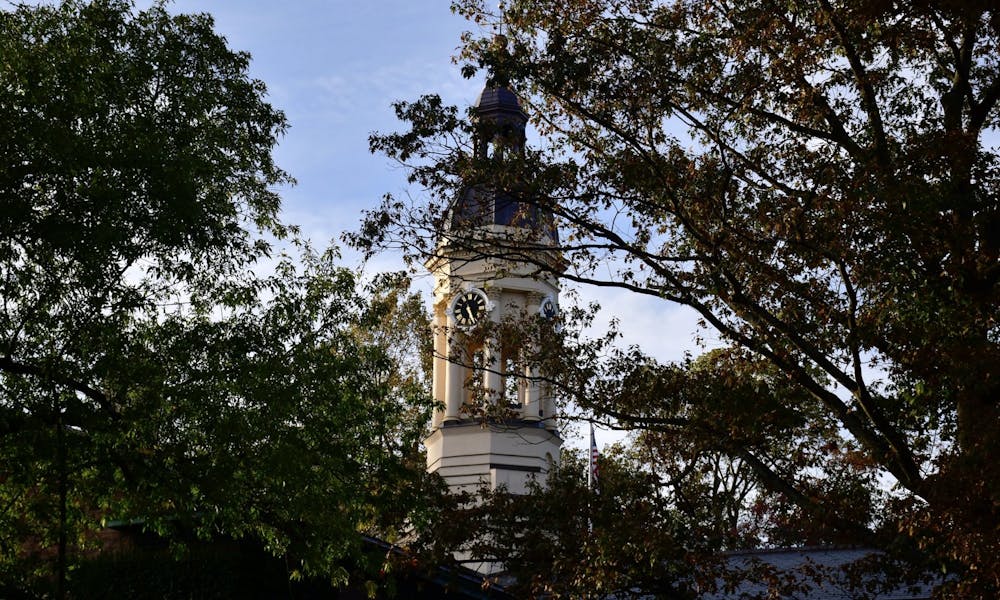As a member of the Class of 2024, I remember spending a great deal of time last year looking at all of the advertised benefits of being a Princeton student. I considered statistics about achievements of the student body and the focus on student life. But as someone who cared a lot about undergraduate focus, one of the main reasons I decided to come here was because of the distinguished faculty who would be teaching me and my peers. The opportunity to learn from leaders of their fields was alluring and, ultimately, convincing.
A few weeks ago, the Department of Education (DOE) opened up an investigation into the prevalence of racism at the University, after President Eisgruber said racism persisted at Princeton, “sometimes by conscious intention, but more often through unexamined assumptions and stereotypes, ignorance or insensitivity, and the systemic legacy of past decisions and policies.” The DOE characterized this as sufficient evidence to open a civil rights investigation into any problematic policies at the University. The Trump administration has made no efforts to hide its animosity toward universities that try to confront systemic racism, and it is easy to dismiss this new investigation as simply part of that larger effort. However, the University can still use this opportunity to push itself to embrace diversity more deeply than it has previously committed — specifically, by hiring and promoting more faculty of color, and by broadening its criteria to achieve this goal.
Princeton clearly states an intention to diversify itself, aspiring “to be a truly diverse community in which individuals of every gender, race, ethnicity, religion, sexual orientation and socioeconomic status can flourish equally.” To its credit, the University has made a lot of progress in recent years in diversifying the student body. However, a serious commitment to creating an environment in which all students can flourish must translate not only into accepting and matriculating a diverse student body. This commitment also means having a diverse faculty at all ranks, from the most junior faculty members to those that hold the most prestigious positions on campus.
In the 2019–2020 academic year, 51 percent of the undergraduate student body identified as people of color. Looking at the faculty reveals a different picture, however. Of the full professors at the University, 16 percent self-identified as people of color. The percentages were 23 percent and 25 percent for associate professors and assistant professors, respectively. There are a multitude of reasons why having a more diverse instructional faculty would be beneficial. Chief among them, it would allow students to engage with professors of different backgrounds and experiences, including their experiences in academia. A good professor can inspire students to study subjects that they may not have considered studying before they took the class. Students of color may feel more encouraged and supported if they see people from similar backgrounds to them having achieved success in that field.
Princeton advertises its wealth of distinguished faculty, and the fact that these distinguished faculty members teach the University’s undergraduate students. After one month as a Princeton student, I realize how extraordinary and positive this is. But it still raises the question: what does it mean to be distinguished in a way that gets a professor recognized and promoted at Princeton? Perusing one campus website, I came across the number of faculty and staff Nobel Prize winners: 27.
The Nobel Prize is awarded to people deemed to have tremendous academic, cultural, or scientific achievements. While it is fantastic that Princeton fosters an environment conducive to high level research, these types of awards and recognitions should not be the only way to prove oneself as distinguished in these fields. The Nobel Prize has been awarded to 950 people since the Prize’s inception, yet only 16 of these have been Black. The typical profile of a winner over the last few decades is a 58-year-old white man.
There’s no doubt that the Nobel and other award systems are changing over time, but Princeton can do more to be proactive. The accomplishments and ideas of scholars from traditionally marginalized and underrepresented groups are often overlooked by awards committees and other gatekeepers in these arenas. With a massively talented faculty already on hand and international recognition that can draw in the best research and cutting-edge thinkers, Princeton can make a bold statement among universities that it does not only rely on awards or similarly narrow external metrics in making decisions about hiring and promotion. Instead, broader criteria could draw more professors from all different backgrounds, who can bring in new ideas, instruct and inspire the next generation of scholars, and help the University live up to its ideals.
Mohan Setty-Charity is a first-year from Amherst, Mass. He can be contacted at ms99@princeton.edu.








